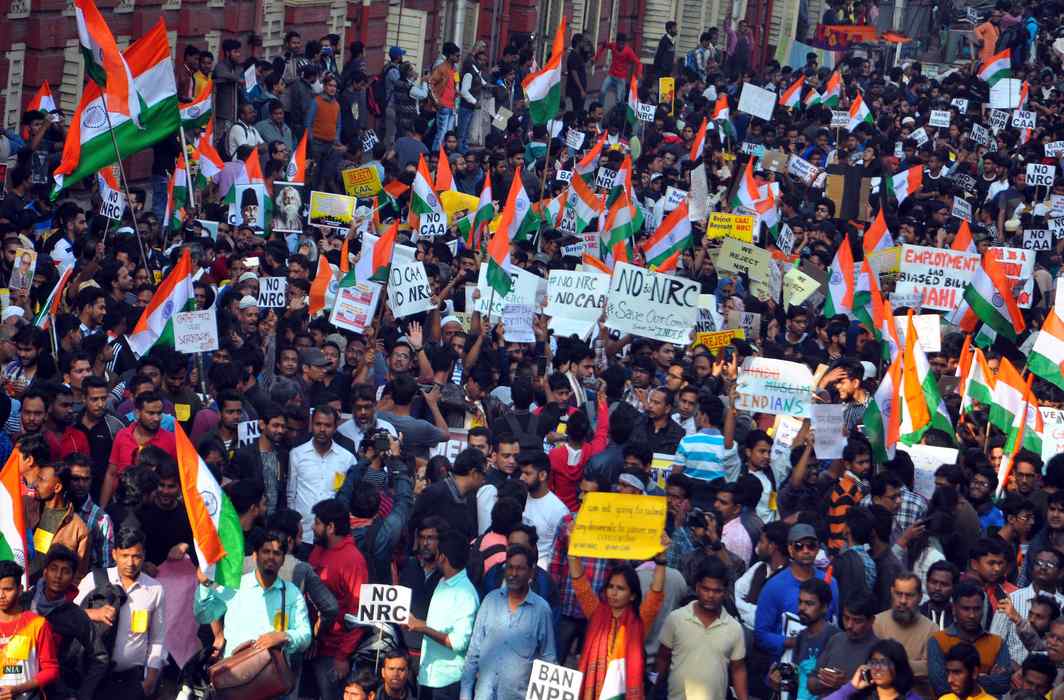The Citizenship Act 1955 lays down rules for the acquisition and determination of Indian citizenship. Enacted in 1955, this act also enables people who were once citizens of India but are now citizens of another country, among others, to apply for an Overseas Citizen of India Card.
Citizenship in India can be attained through five methods:
• by birth in India,
• by descent,
• through registration,
• by naturalisation (extended residence in India), and
• incorporation of a foreign territory into India
How many times has the law been amended
The Citizenship Act, 1955 has been amended five times — 1986, 1992, 2003, 2005, 2015 and 2019.
The 1986 amendment
The 1986 amendment stipulates that in order to be a citizen of India, one of the parents had to be an Indian citizen during the time of birth.
The 1992 amendment
The 1992 amendment states a person born outside India shall be a citizen of India by descent, on or after January 26, 1950, but before December 10, 1992, if his father is a citizen of India at the time of his birth.
The 2003 amendment
The 2003 amendment introduced the notion of “illegal immigrants” and also mandated the Government of India to conduct a National Register of Citizens (NRC).
Enacted under the then Prime Minister Atal Bihari Vajpayee, the amendment inserted Section 14A that provided for conducting headcount of Indian citizens and preparation of the NRC.
The 2005 amendment
To accommodate the growing overseas Indian population, at the turn of the millennium, the parliament introduced the concepts of Person of Indian Origin (PIO) and Overseas Citizen of India (OCI). They were granted certain limited citizenship rights through an amendment made in 2005.
For example: OCI card holders were granted multiple entries, multi-purpose lifelong visa to visit India, exempted from registration with Foreigners Regional Registration Office (FRRO) for any length of stay in India and could participate in financial, economic and educational fields.
Whereas, PIO cardholders were exempted from reporting to the police during their period of stay in India. They were also entitled to visa-free entry into India during the validity of the card i.e. 15 years, provided they carried valid national passports.
The 2015 amendment
The 2015 amendment introduced the concept of an ‘Overseas Citizen of India Cardholder’ (an “OCC”) that essentially replaced and merged OCIs and PIOs. The merging of the two schemes provided PIO cardholders the benefits extended to OCIs, such as visa-free travel to India, rights of residency and participation in business and educational activities in the country.
The 2019 amendment
The latest amendment to the Citizenship Act will make it easier for non-Muslims to become citizens of India. Hindus, Sikhs, Buddhists, Jains, Parsis and Christians from Afghanistan, Bangladesh and Pakistan who escaped religious persecution and arrived in India before December 31, 2014, will be eligible for Indian citizenship. Muslims, however, have been left out.
The duration of residence in India for those seeking citizenship has also been reduced. Earlier, it was compulsory for an individual to have stayed in India for at least 11 years to become a citizen naturally. It has been reduced to six years.
The controversy around the 2019 amendment
The controversial Citizenship Amendment Bill sailed through both Rajya Sabha and Lok Sabha in December. The President’s ascent triggered massive protests across the country in which many lives were lost.
The act has been widely criticised as being “anti–Muslim” as it excludes Muslims from neighbouring countries.
The law violates Article 14 of the Constitution as it makes illegal migrants eligible for citizenship on the basis of religion. Article 14 guarantees equality to all persons, citizens and foreigners. It only allows laws to distinguish between people if the rationale for doing so serves a reasonable purpose.
Opposition and reactions
Opposition parties, human rights activists, student organisations have taken to the streets saying the law discriminates against Muslims and is a violation of the Constitution
Congress President Sonia Gandhi has said that the law will “shred the soul of India”.
West Bengal chief minister Mamata Banerjee carried out a 10-day protest march in Kolkata against CAA and NRC. She has called the law “discriminatory” and demanded equal protection be given to all irrespective of their religion.
Earlier this week, Kerala became the first state to pass a resolution against the controversial law.
DMK chief and leader of opposition in Tamil Nadu state assembly, MK Stalin also took out a massive rally in Chennai.
UN secretary-General Antonio Guterres expressed his concerns about the violence and the “alleged use of excessive force” in the protests against the law.
Petitions
Over 60 petitions have been filed in the Supreme Court challenging the constitutional validity of the controversial law. Among those who filed the petitions are senior Congress leader Jairam Ramesh, the Indian Union Muslim League, Mahua Moitra, Asaduddin Owaisi, Kamal Haasan’s Makkal Needhi Maiam and Asom Gana Parishad, an ally of the ruling BJP in Assam.
The Supreme Court has said it will hear all the petitions against the citizenship law on 22 January, 2020.
Why is Assam upset
Historically, Assam has been a hotbed of protests. Back in 1970s, students across the state led agitations and protests for five years and successfully pressurized the Union government into providing constitutional and legislative safeguards to the indigenous Assamese people.
The five-year agitation came to an end on 15th August 1985 when a Memorandum of Understanding, The Assam Accord, was signed between the Rajiv Gandhi’s Congress government and the All Assam Student’s Union, led by Prafulla Kumar Mahanta. One of the major agreements of the Assam Accord was to deport immigrants entering Assam after 1971.
The recently amended citizenship law annuls the 1985 Assam Accord. For recognition as citizens, clause 5 of the Assam Accord sets March 24, 1971 as the cutoff, but now that date has been brought forward to December 31, 2014.


